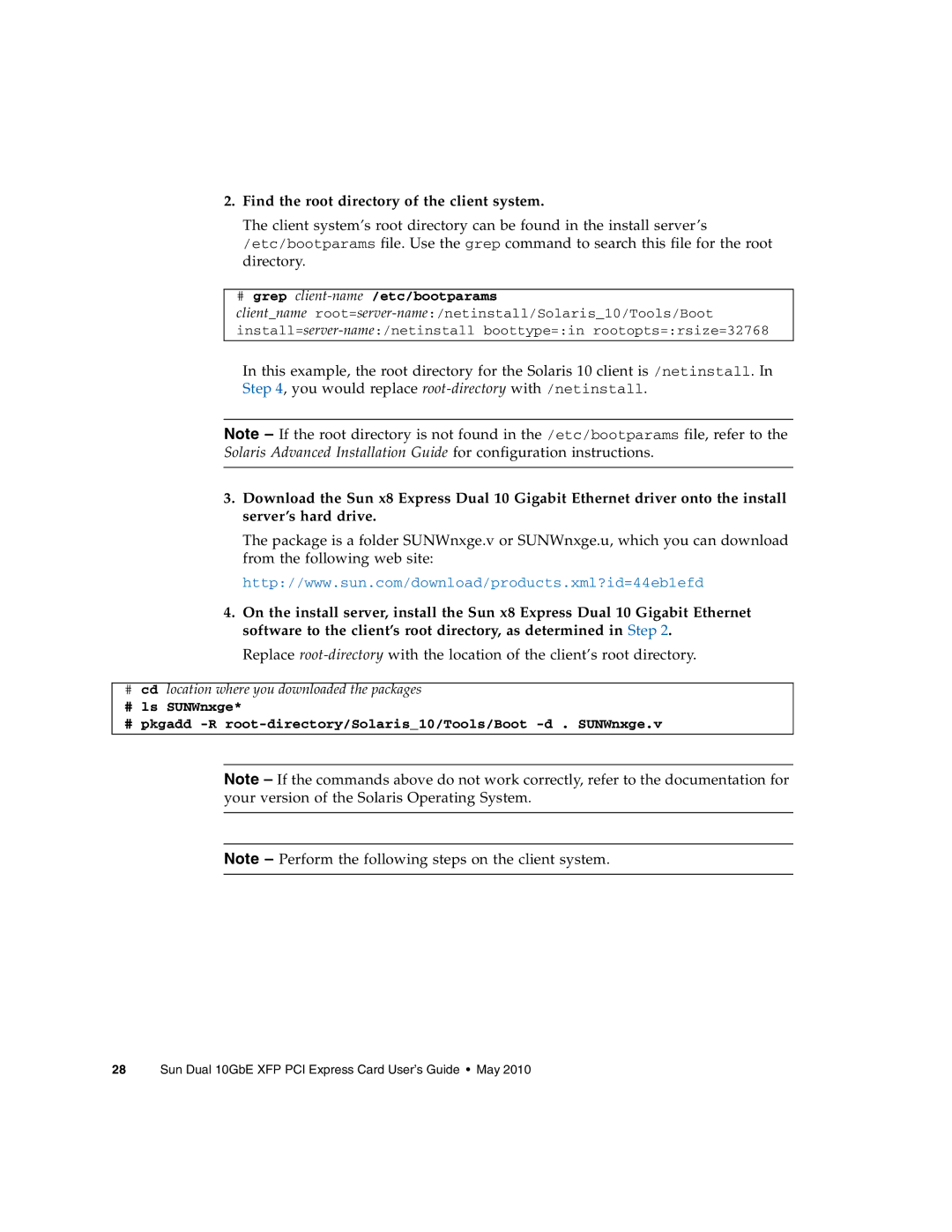
2.Find the root directory of the client system.
The client system’s root directory can be found in the install server’s /etc/bootparams file. Use the grep command to search this file for the root directory.
#grep client-name /etc/bootparams
client_name
In this example, the root directory for the Solaris 10 client is /netinstall. In Step 4, you would replace
Note – If the root directory is not found in the /etc/bootparams file, refer to the Solaris Advanced Installation Guide for configuration instructions.
3.Download the Sun x8 Express Dual 10 Gigabit Ethernet driver onto the install server’s hard drive.
The package is a folder SUNWnxge.v or SUNWnxge.u, which you can download from the following web site:
http://www.sun.com/download/products.xml?id=44eb1efd
4.On the install server, install the Sun x8 Express Dual 10 Gigabit Ethernet software to the client’s root directory, as determined in Step 2.
Replace
#cd location where you downloaded the packages
#ls SUNWnxge*
#pkgadd
Note – If the commands above do not work correctly, refer to the documentation for your version of the Solaris Operating System.
Note – Perform the following steps on the client system.
